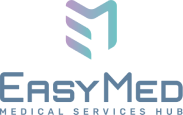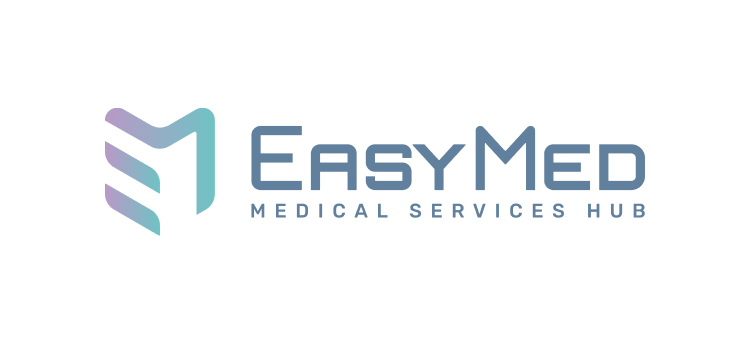
Ultrasound of the prostate
Prostate ultrasound (prostate ultrasound) is a key tool in modern urology. It allows a detailed examination of the prostate without the need for surgery. This method provides doctors with visualization of the structure of the prostate, helping to detect diseases such as prostatitis, hyperplasia, or prostate cancer in the early stages.
Дополнительные процедуры:
- Лабораторный анализ мочи
- Элемент списка #2
- Элемент списка #3
Ultrasound of the prostate with EasyMed
EasyMed will become your reliable assistant and help you quickly make an appointment for a prostate ultrasound in Israel. Cooperation with EasyMed begins from the moment of application. It covers the entire process, including scheduling the procedure and providing support and assistance in interpreting the results.
In addition, EasyMed not only provides diagnostics but also arranges consultations with leading urologists to develop an individual treatment or follow-up plan. This ensures that each patient receives high-quality medical diagnostics and subsequent comprehensive medical support.
Indications for prostate ultrasound
Ultrasound examination of the prostate is a key diagnostic method; therefore, it is prescribed in the following cases:
- Symptoms of prostate disease: An ultrasound of the prostate is often ordered in the presence of symptoms indicating prostate problems. This may include difficulty or pain when urinating, frequent urination at night, a feeling of incomplete emptying of the bladder, and pain in the perineal or pelvic area.
- Preventive check-ups in men over 50 years of age: Regular prostate check-ups are recommended for men over the age of 50, as the risk of prostate diseases, including cancer, increases with age. This makes it possible to detect abnormalities in a timely manner and start treatment.
- Post-diagnosis monitoring of prostate disease: Prostate ultrasound is used to monitor the condition of the prostate in patients who have previously been diagnosed with prostate disease, including adenoma or prostatitis.
- Detection and evaluation of tumors: If tumors are suspected, a prostate ultrasound can help determine their size, shape, and nature (benign or malignant).
Importantly! Regular medical check-ups should not be ignored, especially for men over 50, as this can help in the early diagnosis of potentially serious diseases. Seeing a doctor in a timely manner when any symptoms related to the prostate appear increases the chances of successful and prompt treatment.
Preparation for the procedure
Proper preparation for a prostate ultrasound is key to obtaining accurate and informative results. Below are guidelines to help patients prepare for the procedure.
- Fluid regulation: Fluid intake should be restricted 4 to 6 hours before the procedure to reduce the volume of urine in the bladder. This will minimize discomfort and make it easier to access the prostate.
- Colon cleanse: The cleanliness of the intestines plays a significant role in the quality of prostate imaging. On the eve of the ultrasound, performing a cleansing enema or taking a laxative is recommended. This helps to eliminate gas and feces that can interfere with the examination.
- Nutrition the day before the procedure: Foods that cause gas and bloating should be avoided the day before the ultrasound. This includes legumes, cabbage, fresh fruits, sodas, and fatty foods.
- Special instructions from your doctor: It's important to follow your doctor's recommendations, which may include temporarily stopping certain medications, especially if they affect blood clotting or other factors important to the procedure.
Importantly! Before the ultrasound procedure, the EasyMed specialist will notify the patient of the necessary actions and restrictions. The quality of preparation directly affects the accuracy and reliability of prostate ultrasound results. Failure to follow the instructions may result in the need to repeat the procedure. If you have any doubts or questions about the preparation, feel free to ask your doctor for clarification.
How is a prostate ultrasound performed?
They understand how the procedure works, which can help patients feel more comfortable.
- Introduction to the procedure: Upon arrival at the ultrasound room, the patient is usually explained how the examination will be performed. This is the time to ask any questions and express your concerns.
- Preparation for the examination: The patient will be asked to lie on a couch, usually on their side with their knees bent, as this position provides the best access to the prostate.
- Transrectal ultrasound (TRUS): The procedure is usually performed with the help of a transrectal probe. It is a small device that is inserted into the rectum through the anus. The transducer is wrapped in a disposable medical coating and lubricated with gel to reduce discomfort.
- Scanning process: The doctor gently moves the transducer in different directions to get a complete picture of the prostate's health. A prostate ultrasound allows the doctor to see the size, structure, and any abnormalities in the prostate gland.
- Duration of the procedure: The examination usually takes 15 to 30 minutes. Patients may experience mild discomfort, but the process does not have to be painful.
Importantly! Before the procedure, tell your doctor about any medical conditions, allergies, or concerns. It is important to remain calm and relaxed during the ultrasound, as tension can make the procedure difficult to perform and degrade the image quality.
Diagnostic Capabilities of Prostate Ultrasound
- Assessment of the size and structure of the prostate: Ultrasound can accurately determine the size of the prostate, which is important for diagnosing conditions such as prostatic hyperplasia (adenoma). Ultrasound also makes it possible to assess the structure of prostate tissue, identifying areas with altered echogenicity that may indicate the presence of pathologies.
- Detection of neoplasms: With the help of ultrasound, neoplasms in the prostate gland, including benign and malignant tumors, can be detected. Determining these lesions' nature, size, and location is key to planning further treatment.
- Diagnosis of inflammatory processes: Ultrasound of the prostate effectively detects signs of prostatitis, including changes in tissue structure and the presence of areas with increased blood flow.
- Post-surgical assessment: Ultrasound is used to monitor the condition of the prostate after surgery, such as transurethral resection of benign prostatic hyperplasia, to assess the success of treatment and identify possible complications.
Importantly! Despite its informative value, ultrasound of the prostate cannot always accurately determine the nature of neoplasms; therefore, if malignant processes are suspected, additional examination, including a biopsy, may be required.
Contraindications to the procedure
- Acute inflammatory processes in the rectum: Active inflammatory or infectious processes in the rectum, such as acute proctitis or anal fissures, may be a contraindication to transrectal ultrasound of the prostate due to the risk of aggravation of the condition.
- Recent surgeries: If the patient has recently undergone rectal or pelvic surgery, an ultrasound of the prostate may be postponed until complete recovery to avoid the risk of complications.
- Acute hemorrhoids: During an exacerbation of hemorrhoids, a transrectal ultrasound can be painful and contribute to increased symptoms.
- Allergic reactions to the materials used: In rare cases, patients may have allergic reactions to the gel used during the procedure. In such situations, it is necessary to inform the doctor about this to find alternative options.
Importantly! If there are contraindications, the specialist may recommend postponing the procedure or choosing an alternative diagnostic method, such as transabdominal ultrasound. Do not hesitate to discuss any concerns or concerns with your doctor about the upcoming procedure, as mutual understanding and open communication between the doctor and the patient contribute to an effective and comfortable diagnosis.
EasyMed – Your Reliable Diagnostic Assistant
You can conveniently organize this procedure by contacting EasyMed to make an appointment for a prostate ultrasound. Our team carefully selects medical clinics in Israel, considering each client’s specific requirements and deadlines.
Partnering with EasyMed relieves you of the hassle of finding the right clinic. It minimizes the likelihood of delays, complications, and long waits.
Every step of your application, from submitting the application to receiving the results, is accompanied by our qualified specialists, which guarantees quick access to high-quality medical care in Israel.
Want to make an appointment for a review?
Fill in the following details
and we will contact you as soon as possible
Faq
Frequently asked Questions
We provide personalized healthcare services. Our main goal is to provide you with a quick appointment for the necessary medical examination or consultation with a doctor.
There is no need to wait several months: with us you will get to the right specialist in the shortest possible time.
Waiting times depend on the complexity of the procedure and the doctor’s profile. We can make an appointment with some specialists within 24 hours. For complex procedures, the waiting period of which reaches several months, you will be treated with us within 2-3 weeks.
There are a number of procedures (for example, complex types of MRI) that the patient can wait about a year and a half. We can reduce this period to 3 months.
We cooperate with leading specialists in various fields, as well as with top clinics and laboratories throughout Israel and abroad.
Our doctors use the latest treatment protocols and the most advanced technologies. The clinics we work with are equipped with modern equipment that provides the most accurate results.
Our partners are experienced professionals who have earned trust due to their experience, knowledge and professionalism.
We operate in all regions of Israel. Your appointment will be scheduled at the location most convenient for you.
The cost of services depends on the complexity of the procedure and the doctor’s profile. For accurate information and cost calculation, leave your details or call: 033083020
Yes, absolutely. Confidentiality and protection of our clients' personal information is one of our key priorities. We strictly adhere to all legal and ethical standards to ensure the maximum security of your data.
Our specialists will check whether in a particular case a refund from the insurance company is due. If yes, then after completing the procedure, a receipt will be sent to the insurance agent, who, in turn, makes a request to the insurance company to return the amount due to the patient for the procedure completed.



